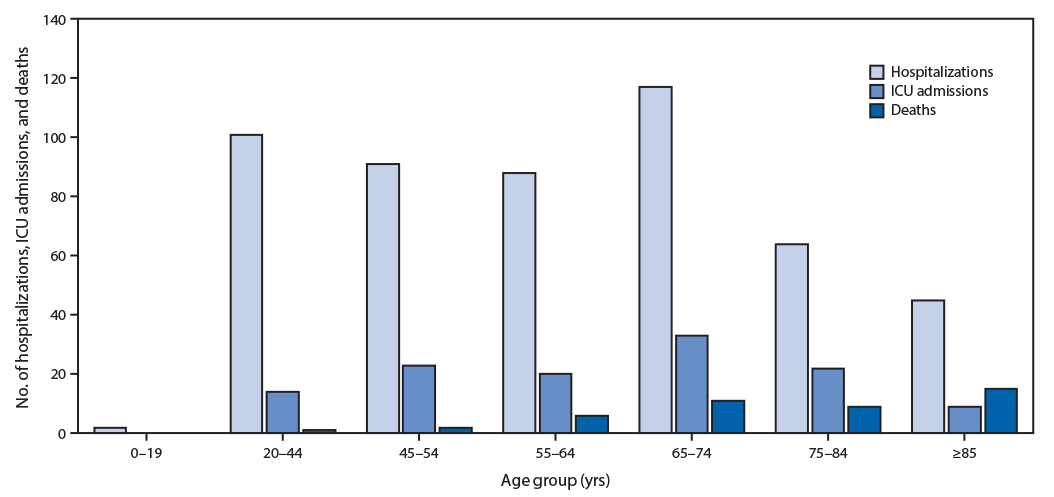
Share On Social!
Older people are highly susceptible to the coronavirus COVID-19, but young adults aren’t off the hook, either.
Almost 40% of U.S. coronavirus patients who were sick enough to need hospitalization were between the ages of 20 to 54, according to recent CDC data.
“I think everyone should be paying attention to this,” Stephen S. Morse, a professor of epidemiology at Columbia University’s Mailman School of Public Health, told the New York Times. “It’s not just going to be the elderly. There will be people age 20 and up. They do have to be careful, even if they think that they’re young and healthy.”
Why Coronavirus is a Concern for Young People
Globally, officials are reporting 246,276 confirmed cases or coronavirus, with 90,000 recoveries and 10,000 deaths.

Out of the 508 U.S. patients known to have been hospitalized, 38% were notably younger — between 20 and 54.
However, a recent study from China suggested that younger patients in their countries required less hospitalization when compared to the older generation.
“The youngest age group, people 19 and under, accounted for less than 1 percent of the hospitalizations, and none of the I.C.U. admissions or deaths,” writes New York Times reporter, .
Even though many studies have shown the risk of dying is significantly higher in older people, younger populations should be extremely careful in the U.S., according to health experts.
“You have the potential then to spread it to someone who does have a condition that none of us knew about, and cause them to have a disastrous outcome,” Dr. Deborah Birx, a physician and State Department official who is a leader of the administration’s coronavirus task force, told the New York Times.
Trump administration and health officials have also warned young people to “heed the advice” on coronavirus.
Why Coronavirus is a Concern for Young Latinos
 Latinos are the most significant minority in the U.S. and are already 17% of the U.S. population — Latinos could reach 30% by 2060.
Latinos are the most significant minority in the U.S. and are already 17% of the U.S. population — Latinos could reach 30% by 2060.
The population also is very young. 35% are younger than 18.
If the growing novel coronavirus outbreak becomes a lasting pandemic, it could accelerate fundamental changes in the economy, politics, and the workplace for Latinos.
Too many Latino families, whether they are undocumented citizens or low-wage employees, lack access to quality health insurance, according to a Salud America! research review.
Moreover, the coronavirus outbreak highlights inequities impacting Latinos and their family, especially in rural areas.
According to a recent World Health Organization (WHO) report, the coronavirus outbreak is more vulnerable to the elderly, those with weak immune systems, and individuals who are already sick face the most significant risk.
Common signs of infection include respiratory symptoms, fever, cough, shortness of breath, and breathing difficulties. In more severe cases, an infection can cause pneumonia, severe acute respiratory syndrome, kidney failure, and even death.
Still, those who are at higher risk for infection, according to WHO, include:
- Cancer
- Hypertension (high blood pressure),
- Diabetes,
- Cardiovascular disease,
- Chronic respiratory disease (such as lung disease or asthma)
Latinos have a higher risk of cancer, diabetes, and cardiovascular disease than their white peers. Worse, cancer and heart attack is the leading cause of death in Latinos.
Despite national efforts to redress racial/ethnic disparities, Latino Americans, mainly young continue to share a high disproportionate burden of diabetes, certain types of cancer and cardiovascular-related morbidity and mortality and coronavirus outbreak may add to the current health disparities among young Latinos.
Learn more about the coronavirus outbreak and its implications concerning health.
Explore More:
Healthcare AccessBy The Numbers
142
Percent
Expected rise in Latino cancer cases in coming years



